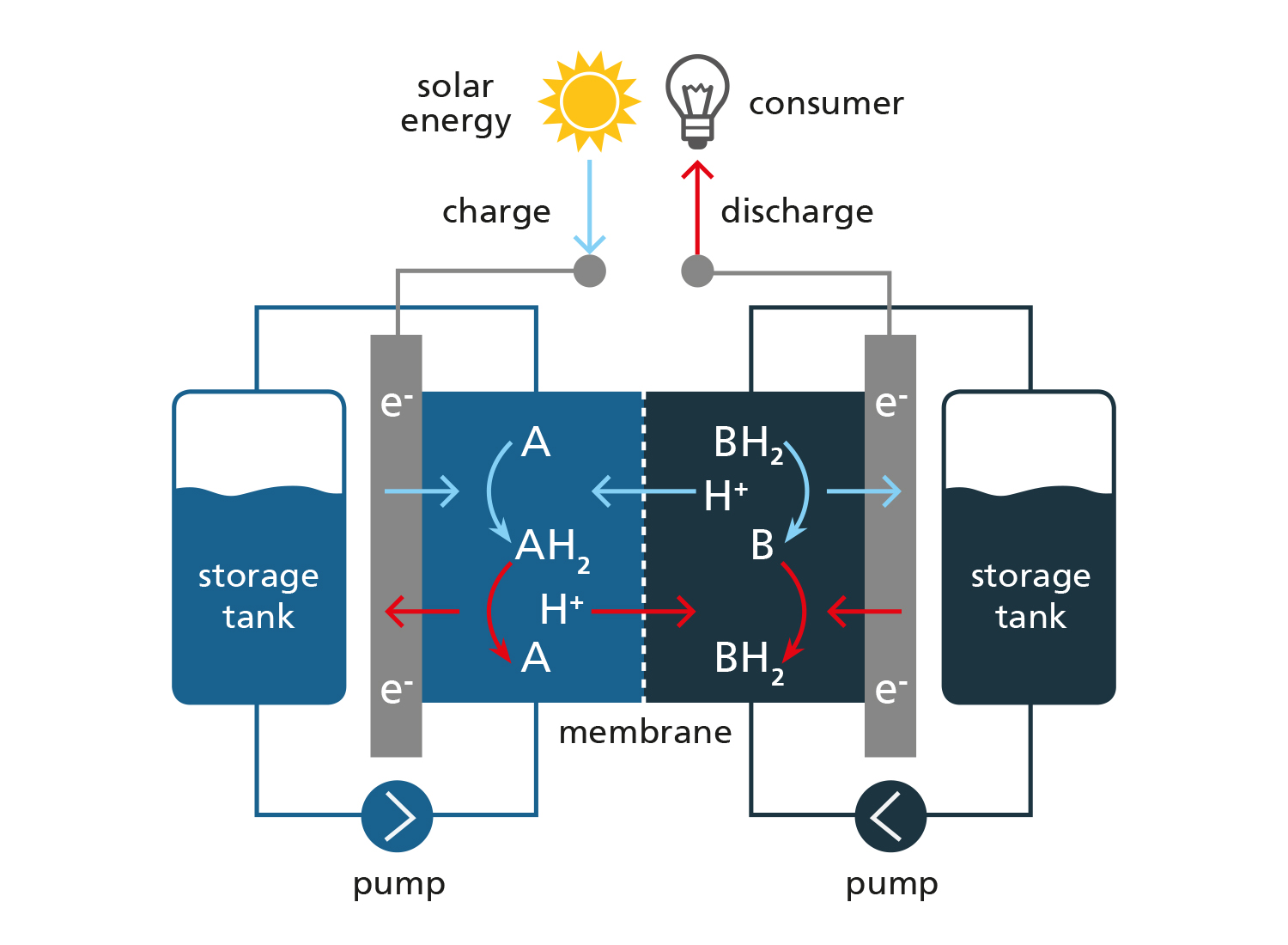EU-project SONAR: Better batteries for electricity from renewable energy sources
Electricity from renewable energy sources contributes to combat climate change. One of the challenges is to develop technologies for storing excesses in energy supplies quickly and without loss. Organic redox flow batteries (RFBs) promise a viable route to this end: operated where needed, they rely on matter-bound storage – just in analogy to nature's example.
The benefits of an RFB system depend on many aspects: The perfect, redox-active material should smoothly accept or release electrons, while being soluble, stable, non-toxic and inexpensive. Moreover, the battery and tank systems should be customized to the specific requirements of the redox material and the site's conditions.
The SONAR project funded by the European Commission aims at capturing the entire development process with all relevant aspects in a digital manner in order to accelerate the screening for suitable substances and the optimization of a battery system's design for specific operating conditions.
The project partners develop tools and workflows for investigating electroactive materials up to whole battery systems. To this end, they combine simulation methods on different physical scales – ranging from the electronic/quantum level to the visible, macroscopic behavior. Factors such as cost, lifetime and performance are taken into account in order to compare competing energy storage technologies comprehensively.
“To increase screening throughput, SONAR uses intelligent methods of data integration and data analysis, utilizing the growing amount of data generated during the project,” says Dr. Jan Hamaekers, head of the SCAI department Virtual Material Design and exploitation manager in the SONAR project. “For maximum reliability, we compare the results of simulations and models continuously to experimental data and validate predictions by lab measurements.”
In SONAR, six project partners cooperate with five associated industrial companies. This will ensure the economic relevance of the results. Fraunhofer SCAI uses the models developed independently as well as in a comprehensive screening service to assess the technical and economic potential of a new technology in the early development phase. This reduces costs, shortens the time to market and thus strengthens the competitiveness of the battery industry in the European Union in the field of organic RFBs.
The project starts as of January 1st 2020 and is to run for four years.
Contact:
Dr. Jan Hamaekers
Head of Business Area Virtual Material Design
Fraunhofer Institute for Algorithms and Scientific Computing SCAI
53754 Sankt Augustin
E-Mail: jan.hamaekers@scai.fraunhofer.de
www.scai.fraunhofer.de/en/vmd
